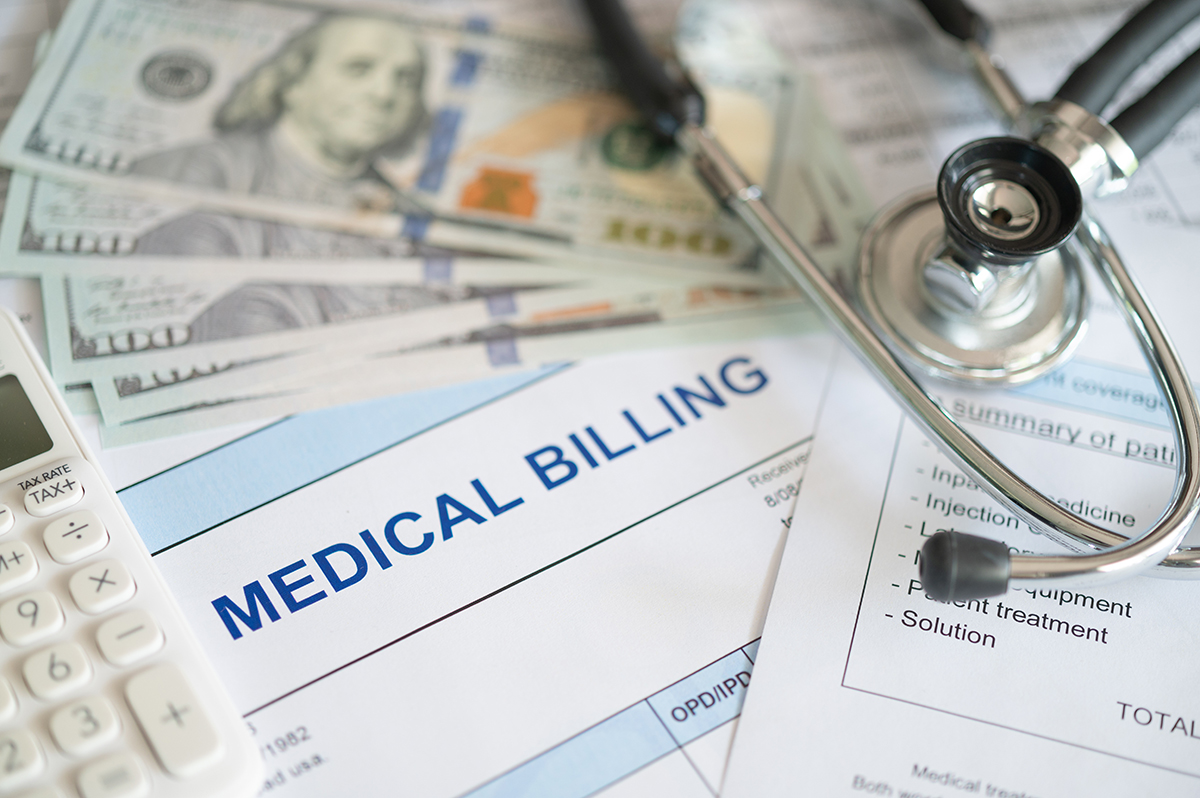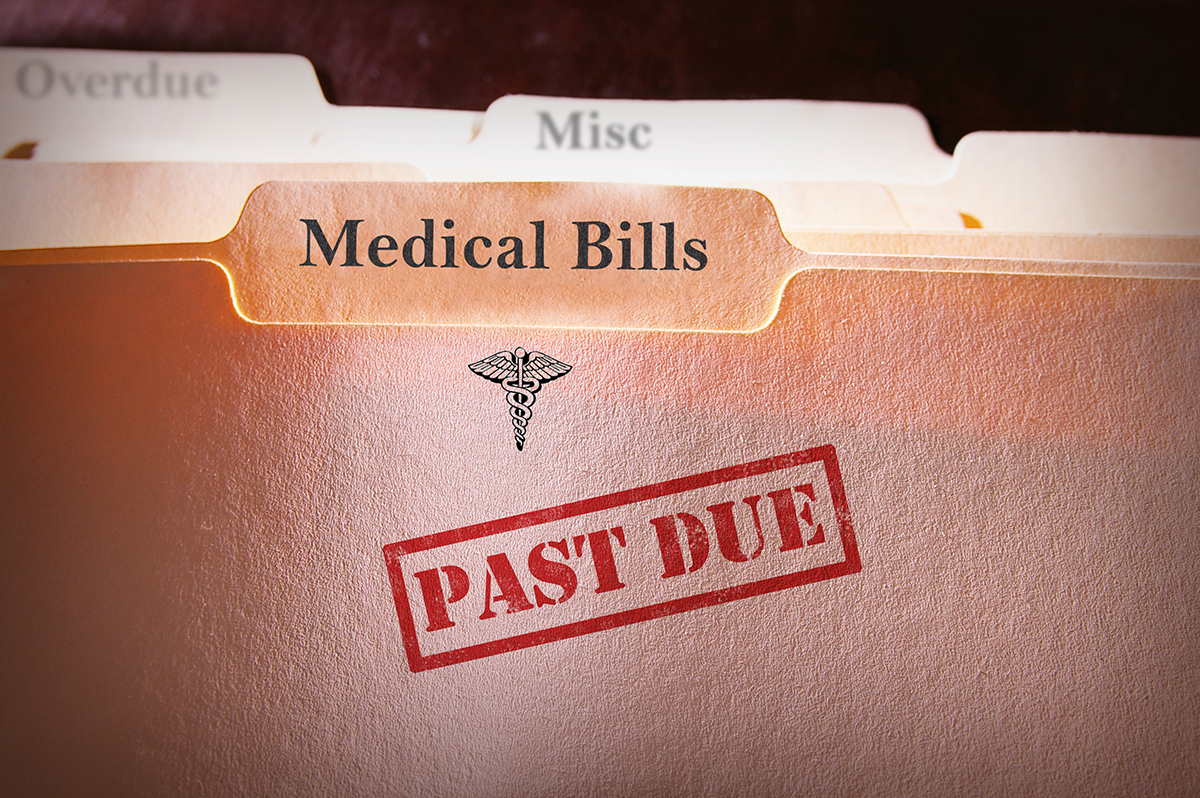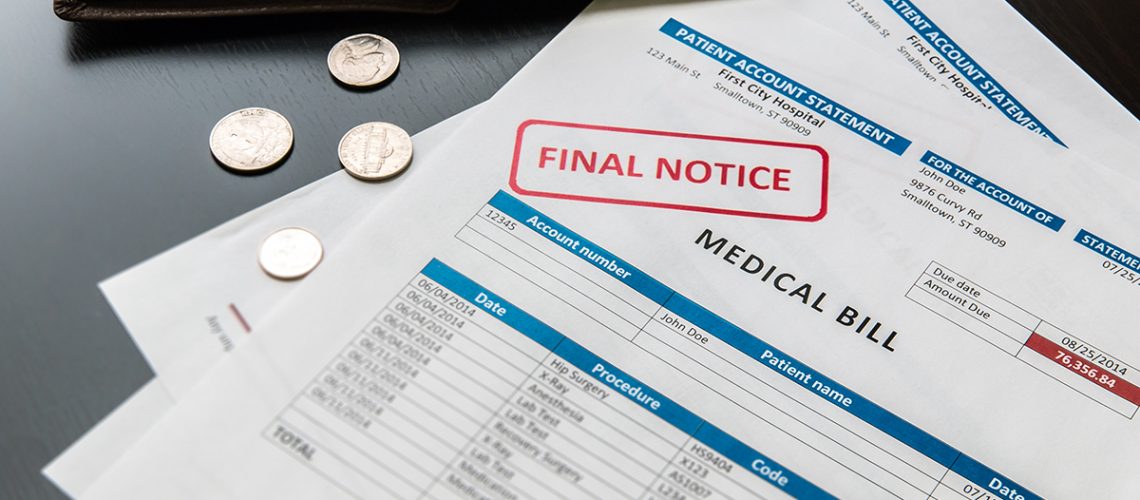Impact of Medical Debt on Your Credit Score
Medical debt is a common financial burden that many individuals face, but does it have an impact on your credit score? Approximately 14 million people (6% of adults) in the U.S. owe over $1,000 in medical debt, and about 3 million people (1% of adults) owe medical debt of more than $10,000. [1]
For those struggling with unexpected medical expenses, the idea of a credit score taking a hit can be a major source of stress.
While medical debt is treated differently from other forms of debt, understanding how it can affect your financial standing.
What is Medical Debt?
Medical debt refers to money owed for medical services and treatments that have not been paid for at the time of service. This can include a variety of healthcare-related costs, such as hospital bills, doctor’s fees, surgeries, prescription medications, diagnostic tests, and emergency care.
Essentially, it’s any outstanding balance from medical treatment that you are financially responsible for, whether due to insurance coverage gaps or lack of insurance altogether.
Examples of medical debt might include:
- A hospital bill for emergency care after an accident
- Unpaid co-pays and deductibles for a doctor's visit or specialist consultation
- Prescription medication costs not covered by insurance
- A balance owed after insurance has paid its portion, leaving the patient responsible for the remainder
How Medical Debt Differs from Other Types of Debt?
While medical debt is still a form of debt, it has unique characteristics that set it apart from traditional debts like credit cards, personal loans, or mortgages. Some key differences include:
- Unpredictability: Unlike credit card or mortgage debt, medical debt is often unexpected. Many individuals incur medical debt due to sudden illness, accidents, or emergencies, making it more challenging to plan for and manage.
- No Interest (Initially): Typically, medical debt does not accrue interest in the same way as credit card debt or loans. However, if the debt is not paid on time and is sent to collections, interest and fees may be added.
- Insurance Complications: A major factor in medical debt is the involvement of insurance. Even insured individuals can face significant medical bills if their insurance doesn’t cover the full cost or if they face a high deductible, copays, or out-of-network charges.
- Less Immediate Impact on Credit: Medical debt doesn’t immediately impact your credit score the way credit card or loan defaults do. It usually won’t show up on your credit report until it is significantly overdue (typically after 180 days) and sent to collections.
- Protections and Regulations: There are specific laws that protect consumers from aggressive collections related to medical debt. For example, in many places, hospitals are required to offer financial assistance programs to those who qualify, and some states have protections against medical debt impacting credit scores immediately.

How Medical Debt Affects Your Credit Score
Credit scores are numerical representations of a person’s creditworthiness, determined by major credit bureaus (Equifax, Experian, and TransUnion). The two most common credit scoring models used are FICO and VantageScore. [2] The FICO scores, for example, are calculated based on factors such as:
- Payment History (35% of FICO score): This is the most important factor. It reflects whether you've paid your bills on time, including credit cards, loans, and medical debt. If you miss payments on your medical bills, especially if they end up in collections, it can significantly lower your score.
- Amounts Owed (30% of FICO score): This factor considers how much debt you currently owe. If medical debt is sent to collections and added to your credit report, it increases your total outstanding debt, which can lower your credit score. The more medical debt you owe, the higher the potential impact.
- Length of Credit History (15% of FICO score): The longer your credit history, the better it can be for your score. If your credit history is long and established, medical debt may not have as severe an impact, especially if you have a strong history of managing other debts responsibly.
- New Credit (10% of FICO score): This factor considers how many new credit accounts you’ve opened recently, as well as the number of recent credit inquiries. Medical debt does not directly affect this category, unless it leads you to open new lines of credit or take on more loans to cover your medical bills, which could impact your score.
- Credit Mix (10% of FICO score): This refers to the variety of credit accounts you have, such as credit cards, installment loans, and mortgages. Medical debt doesn’t directly affect this category, but if you need to take out additional loans or credit to handle medical bills, it could change your credit mix, potentially affecting your score.
Role of Medical Debt in Your Credit Report
Medical debt is not immediately reported to the credit bureaus. It generally takes 180 days of non-payment before it is sent to collections and appears on your credit report. This grace period allows time for individuals to resolve any billing issues or settle the debt without impacting their credit score.
However, if medical debt does make it to collections and appears on your credit report, it can significantly hurt your credit score.
This will primarily affect your Payment History (since the debt is unpaid) and Amounts Owed (since you now have additional debt listed). If the debt is resolved and paid off, the impact can diminish, but it can still stay on your credit report for up to seven years.

When Medical Debt Gets Reported to Credit Bureaus
Medical debt does not immediately impact your credit score when you first incur it. Credit bureaus generally won’t report unpaid medical debt until it has been delinquent for 180 days.
This grace period is designed to give you time to address any billing disputes, arrange payment plans, or even apply for financial assistance programs through healthcare providers before the debt gets reported to collections.
However, if the debt remains unpaid after 180 days, healthcare providers or collections agencies may send it to a collection agency, which can then report it to the credit bureaus.
At this point, the medical debt can show up on your credit report, affecting your Payment History and Amounts Owed categories, both of which are key factors in determining your credit score.
What Happens if Medical Debt is Sent to Collections?
When medical debt is sent to collections, it becomes a major red flag for your credit score. The collection account will typically stay on your credit report for up to seven years, even if you pay the debt later. This negative mark can reduce your score, making it harder to qualify for loans, mortgages, or credit cards with favorable interest rates.
Once the debt is paid off or settled, the account will still remain on your credit report for a while, but it will be marked as “paid” or “settled.” This can help reduce some of the negative impact on your credit score, though the account’s presence will still affect your creditworthiness until it naturally drops off your credit report after seven years.
Medical Debt vs. Other Collections
While medical debt collections affect your credit report similarly to other types of collections, there are some important distinctions:
- Grace Period: Medical debt has a longer grace period before it is reported to credit bureaus, which provides consumers with a chance to address the issue before it starts affecting their credit.
- Treatment by Scoring Models: Some credit scoring models (like FICO 9 and VantageScore 3.0+) treat paid medical collections more leniently than other types of collections. If the medical debt is paid or settled, it may not have as significant an impact on your credit score as other types of debt collections.
In contrast, other types of collections (like unpaid credit card debt or loans) are typically reported to the credit bureaus much sooner and do not benefit from the same grace periods or special treatment in some scoring models.
What to Do If You Have Unpaid Medical Debt
If you have unpaid medical debt that may affect your credit, there are a few strategies to consider:
- Review Your Bills: Ensure the charges are accurate. Medical billing errors are common, and you have the right to dispute incorrect charges before they become part of your credit report.
- Negotiate With Providers: Many healthcare providers offer financial assistance programs, payment plans, or discounts. Don’t hesitate to contact them to negotiate a payment plan or reduced bill.
- Monitor Your Credit Report: Check your credit report regularly to catch medical debt as soon as it’s reported. This will allow you to address any issues quickly and keep an eye on the impact it has on your credit score.
By understanding when medical debt gets reported and taking steps to address it early, you can minimize its long-term effects on your credit score and financial health.

If you’re struggling with overwhelming debt, contact our experienced bankruptcy attorneys today at Richard West to explore your options and regain financial freedom.
Sources:
[1] The burden of medical debt in the United States – Peterson-KFF Health System Tracker. (2024, February 12). Peterson-KFF Health System Tracker. https://www.healthsystemtracker.org/brief/the-burden-of-medical-debt-in-the-united-states/
[2] myFICO. (2024, December 16). What’s in my FICO® Scores? myFICO. https://www.myfico.com/credit-education/whats-in-your-credit-score



